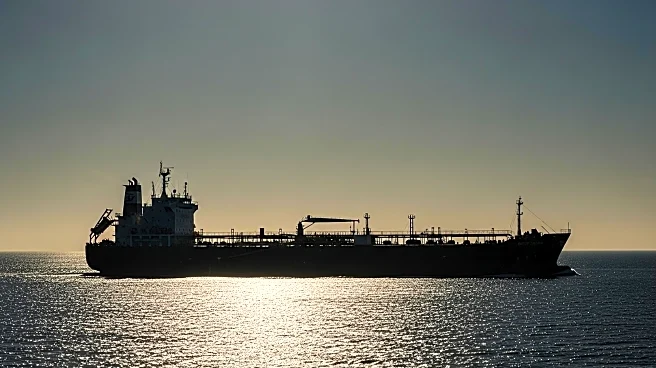What's Happening?
The shadow tanker Boracay has resumed its journey after eluding authorities once more. The vessel, known for its elusive nature and false flag operations, was detained by French authorities but managed to get underway again. Boracay, an 18-year-old crude oil tanker, has been involved in multiple incidents of registry obfuscation and name changes. Despite sanctions and attempts to detain it, the tanker continues to transport Russian crude oil, currently bound for India. The vessel's captain is scheduled to return to France for court proceedings related to non-compliance with orders during a previous boarding.
Why It's Important?
The ongoing saga of the Boracay highlights significant challenges in maritime enforcement and international regulations. The vessel's ability to evade authorities underscores the complexities of tracking and regulating shadow fleet operations. This situation impacts global oil markets, as the tanker carries Russian crude, potentially affecting supply chains and pricing. The incident also raises concerns about maritime security and the effectiveness of international sanctions, prompting discussions on policy improvements to address such evasive operations.
What's Next?
French President Emmanuel Macron has announced a European-led coalition to strategize against shadow fleet operations. This coalition aims to disrupt the business model of such vessels, potentially leading to stricter enforcement and policy changes. The captain's upcoming court appearance may result in legal consequences, influencing future maritime enforcement actions. The European Union's authorization for member states to challenge vessel registries could lead to increased scrutiny and detentions of similar vessels.
Beyond the Headlines
The Boracay's operations reflect broader issues in maritime law and enforcement. The vessel's ability to change flags and evade detection highlights gaps in international maritime regulations. This situation may prompt discussions on enhancing transparency and accountability in vessel registration processes. Additionally, the geopolitical implications of transporting Russian crude amid sanctions could influence diplomatic relations and trade policies.










